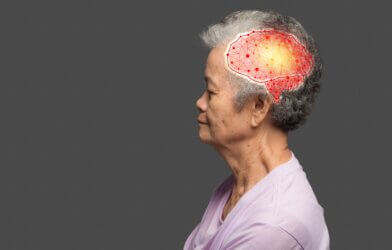As we age, our cognitive abilities, including memory, begin to decline. While this process is a natural part of aging, some individuals may experience a more rapid decline than others. Recent research, published in the journal Alzheimer’s Association, has shed light on the potential role of blood biomarkers in predicting these memory changes, particularly in middle-aged adults.
A revolutionary study conducted by researchers at the Framingham Heart Study (FHS) has delved into the complex relationship between various blood biomarkers and memory changes in middle age. The study, which included 793 participants aged 60 years or younger, aimed to identify sex-specific biomarkers that could serve as early predictors of cognitive decline.

Blood biomarkers are measurable indicators in the blood that can provide valuable insights into an individual’s health status. In the context of cognitive health, certain biomarkers have been linked to an increased risk of developing dementia later in life. However, the specific role of these biomarkers in midlife memory changes, and how they may differ between men and women, has remained largely unexplored until now.
FHS researchers analyzed a wide range of blood biomarkers, including those related to cardiovascular health, metabolism, inflammation, and the hallmark proteins of Alzheimer’s disease, amyloid-beta (Aβ) 40 and 42. By examining the associations between these biomarkers and memory changes over time, the study aimed to identify potential early warning signs of cognitive decline.
“Besides life expectancy, the gender disparity in dementia may also be influenced by multiple factors, such as socioeconomic risk factors, inflammation, reproductive markers and the amyloid β protein42 (Aβ42),” says co-corresponding stuy author Dr. Huitong Ding, a postdoctoral associate at Boston University Chobanian & Avedisian School of Medicine, in a media release. “Therefore, it is critical to explore blood biomarkers that may have differing associations with cognitive changes between men and women to better understand the underlying mechanisms of dementia and develop effective interventions.”
One of the key findings of the study was the significant association between higher levels of adiponectin, a hormone involved in regulating glucose levels and inflammation, and a slower rate of memory decline in both the overall sample and in women specifically. This suggests that adiponectin may have a protective effect on memory function, particularly in middle-aged women.
In contrast, higher levels of fasting blood glucose (FBG) were associated with a faster rate of memory decline in the overall sample and in women. This finding highlights the importance of maintaining healthy blood sugar levels in midlife to preserve cognitive function, especially for women.
The study found a U-shaped relationship between high-density lipoprotein (HDL) cholesterol, often referred to as “good” cholesterol, and memory changes. Both very low and very high levels of HDL were associated with faster memory decline, suggesting that maintaining optimal HDL levels may be crucial for cognitive health in middle age.
The study also identified two additional biomarkers that were significantly associated with memory decline in women but not in men or the overall sample: hemoglobin A1c (HbA1c) and plasma insulin. Higher levels of these markers, which are indicative of poor glucose control and insulin resistance, were linked to a faster rate of memory decline in middle-aged women.
These findings underscore the complex nature of the relationship between blood biomarkers and cognitive health, and the importance of considering sex-specific differences. While some biomarkers, such as adiponectin and FBG, showed consistent associations across the overall sample and in women, others, like HbA1c and plasma insulin, were only significant predictors of memory decline in women.
“Our findings highlight the importance of targeting cardio-metabolic risks and the need to validate midlife specific biomarkers that can accelerate the development of primary preventive strategies,” explains co-corresponding study author Dr. Chunyu Liu, professor of biostatistics at Boston University School of Public Health.

The results have important implications for the development of personalized prevention and intervention strategies for cognitive decline. For example, the findings suggest that prioritizing metabolic health, particularly maintaining healthy blood sugar levels and reducing insulin resistance, may be especially important for preserving memory function in middle-aged women. Incorporating lifestyle changes, such as adopting a balanced diet and engaging in regular physical activity, could be key to mitigating the risk of cognitive decline in this population.
While the FHS study represents a significant step forward in our understanding of the relationship between blood biomarkers and midlife memory changes, further research is needed to confirm these findings and explore their potential applications in clinical practice. Additionally, expanding these investigations to include more diverse populations will be crucial to ensuring that any future interventions are effective and equitable.












